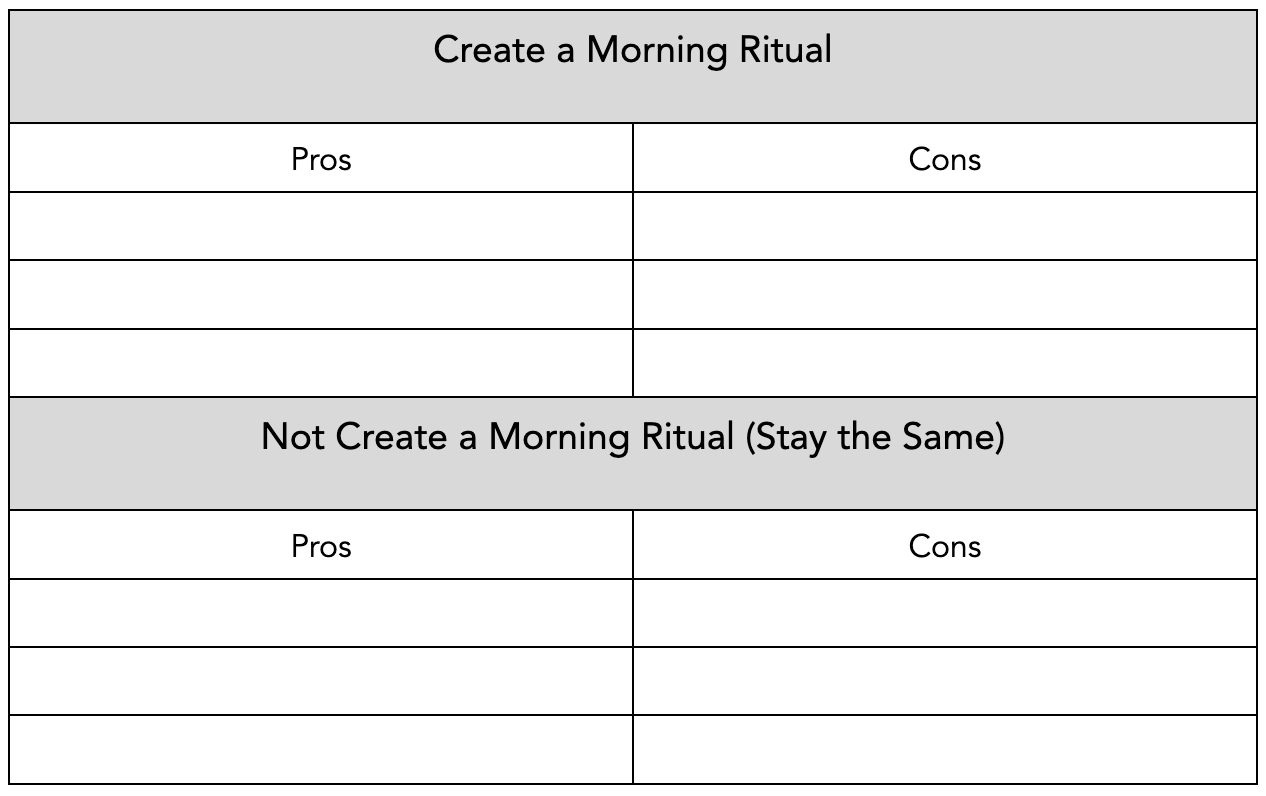How to Use Critical Thinking to Get Out of Your Own Way
3 Takeaways
Learn to make decisions with critical thinking skills
Takeaway tool: a decision chart (Pro-Pro-Con-Con)
We can evaluate arguments from different perspectives and proactively dismantle our cognitive biases
Getting Out of Your Own Way
In addition to teaching content, my job as a psychology professor is to teach my students to act with wisdom. I have them do an assignment that teaches a critical thinking tool on decision-making that I learned from the world of psychotherapy (see Marsha Linehan’s Dialectical Behavioral Therapy).
Essentially, you expose your brain to a dual (internal) audit of your decision-making. You weigh the pros-and-cons of doing the thing/making the decision and a simultaneous pros-and-cons list of not doing the thing/maintaining the status quo. Let me give you an example to make this less abstract:
Let’s say I want to create a morning ritual, but I’m unsure if it will make a difference in my mindset. Decisions, decisions, what will I do?
The question is: Do I create a morning ritual/routine or not? So that’s what I’ll put at the top of my chart. In the middle of the chart, I’ll put the decision to maintain the status quo/not change.
Pros and Cons of creating a morning ritual/not creating a morning ritual.
After I fill this list in with claims, I can build my argument. Yes, this is my argument against myself - in The Battle of Wills!
Here are my claims:
Filled out chart of pros and cons of creating a morning ritual.
While the pros of a morning routine make a compelling case (“increased clarity and purpose”), it’s really the cons of me staying the same that light a fire under me to change. If I can avoid “feeling overwhelmed by daily chaos and like I’m already behind,” I’m convinced to change. That’s the pain I want to avoid at all costs!
The conclusion that I reached is: I will create a morning routine/ritual.
This level of evaluation takes multiple perspectives into account, which I won’t lecture on in this post. However, I will give you the same assignment I give my Critical Thinking in Psychology students:
Your Task
Step 1: Create an argument for implementing a morning or nighttime ritual.
Step 2: Use the table provided.
Step 3: Draw your own conclusion.


